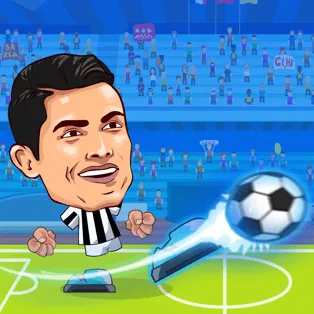Berserk, the dark fantasy manga masterpiece by Kentaro Miura, has captivated readers for decades with its intricate storytelling, complex characters, and profound philosophical themes. Among the many layers of depth in this epic tale, the influence of Friedrich Nietzsche’s philosophy, particularly his concept of the “will to power,” stands out as a central theme that permeates the narrative and character development. This article delves into the Nietzschean themes present in Berserk Manga, exploring how they shape the world, characters, and overall narrative of this beloved manga series.
Understanding Nietzsche’s Will to Power
Before we dive into the world of Berserk, it’s essential to grasp the concept of the “will to power” as proposed by Friedrich Nietzsche. This philosophical idea suggests that the primary driving force in humans is not merely the will to survive, but the desire to expand one’s power and capabilities. Nietzsche believed that this will to power was the fundamental motivation behind all human behavior, influencing our actions, thoughts, and aspirations.
In Berserk, this concept is vividly brought to life through the actions and motivations of its characters, particularly the main protagonists Guts and Griffith. Their relentless pursuit of their goals, often in the face of overwhelming odds and horrific circumstances, embodies the Nietzschean ideal of constantly striving to overcome oneself and one’s limitations.
Guts: The Embodiment of the Übermensch
Guts, the main protagonist of Berserk, can be seen as a representation of Nietzsche’s concept of the Übermensch or “overman.” This ideal individual is one who has overcome human limitations and societal constraints to forge their own path and values. Guts’ journey throughout the series is a constant struggle against fate, demons, and his own inner darkness.
From his traumatic childhood to his relentless battles against seemingly insurmountable odds, Guts exemplifies the will to power through his refusal to succumb to despair or accept the limitations imposed upon him by others or circumstances. His famous line, “I’m used to fighting to survive,” encapsulates this ethos perfectly, showcasing his determination to push beyond mere survival and actively shape his own destiny.
The Struggle Against Fate
One of the most prominent Nietzschean themes in Berserk is the rejection of predetermined fate. Guts’ constant defiance of the seemingly inevitable, whether it’s his survival of the Eclipse or his ongoing battle against the God Hand, mirrors Nietzsche’s call to create one’s own values and meaning in life rather than accepting those imposed by society or religion.
Griffith: The Dark Side of Ambition
While Guts represents the more heroic aspects of the will to power, Griffith embodies its darker potential. His unwavering ambition and charisma make him a compelling character, but his ultimate betrayal during the Eclipse reveals the dangers of unchecked desire for power.
Griffith’s transformation into Femto, a member of the God Hand, can be seen as a twisted realization of the Übermensch concept. He transcends his human limitations but at the cost of his humanity and the lives of his comrades. This serves as a stark warning about the potential consequences of pursuing power without moral constraints.
The Eternal Recurrence
Nietzsche’s idea of eternal recurrence, which posits that all existence recurs infinitely, finds expression in Berserk through the cyclical nature of its world. The concept of causality and the idea that events are predestined to repeat themselves play a significant role in the story, particularly in relation to the God Hand and the Idea of Evil.
This theme challenges characters and readers alike to consider how they would live if every moment of their lives were to repeat eternally. It adds depth to the characters’ choices and actions, especially in moments of extreme adversity or moral dilemma.
The World of Berserk: A Nietzschean Landscape
The brutal and unforgiving world of Berserk serves as the perfect backdrop for exploring Nietzschean themes. In this harsh reality, characters are constantly forced to confront their own limitations, make difficult moral choices, and strive for survival and meaning in a seemingly chaotic and indifferent universe.
The presence of supernatural elements, such as the God Hand and the apostles, adds another layer to this philosophical exploration. These beings, with their immense power and apparent transcendence of human limitations, serve as both temptation and challenge to the human characters, embodying the ultimate expression of the will to power.
Morality Beyond Good and Evil
Berserk’s nuanced portrayal of morality aligns closely with Nietzsche’s concept of “beyond good and evil.” The manga consistently challenges traditional notions of morality, presenting characters and situations that defy simple categorization as right or wrong. This complexity is particularly evident in Guts’ actions, which often blur the line between heroism and brutality.
The Impact on Character Development and Storytelling
The incorporation of Nietzschean themes in Berserk significantly enhances its character development and storytelling. Characters are not simply good or evil but complex individuals shaped by their experiences and choices. Their struggles, both internal and external, become more meaningful when viewed through the lens of the will to power and the quest for self-overcoming.
This philosophical underpinning also contributes to the manga’s enduring appeal. Readers are drawn not just to the stunning artwork and intense action sequences, but also to the profound questions about human nature, morality, and the meaning of existence that the story explores.
Conclusion: The Enduring Legacy of Berserk’s Philosophy
The integration of Nietzschean themes in Berserk elevates it beyond a typical dark fantasy manga, transforming it into a profound exploration of human nature and the human condition. Through its complex characters and richly detailed world, berserkonline.net invites readers to grapple with challenging philosophical concepts and question their own beliefs and values.
As we continue to explore and analyze the depths of Berserk, it’s clear that its philosophical underpinnings contribute significantly to its status as a masterpiece of manga storytelling. The series serves not only as a gripping tale of survival and revenge but also as a thought-provoking meditation on power, morality, and the human will to overcome seemingly insurmountable obstacles.
We invite you to share your own experiences and interpretations of the Nietzschean themes in Berserk. How has the manga’s philosophical depth impacted your reading experience? What other philosophical influences do you see in the series? Join the discussion and let’s continue to unravel the complex tapestry of ideas woven into this extraordinary manga.





























